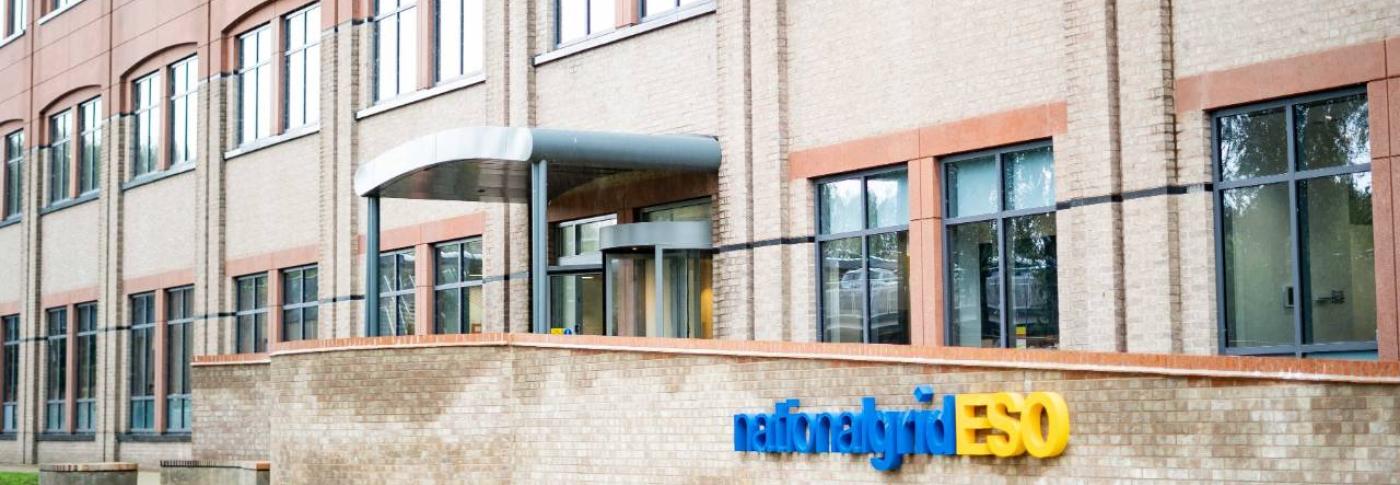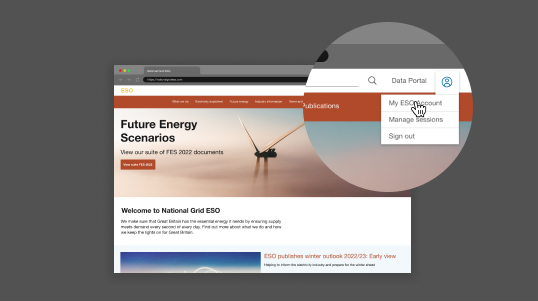
A day in the life of an ESO Graduate
31 Jul 2020 - 5 minute read
Our colleagues are at the heart of the ESO, working hard to operate a safe and reliable electricity system all whilst supporting the transition to a greener, and more efficient system for future generations.
Jenny Wignall, who is on our National Grid graduate scheme, gives an insight into her time at the ESO and what made her embark on a career in the energy industry...
How did you join the National Grid graduate scheme and what did the interview process look like?
I studied maths at the University of Birmingham and graduated in 2018. I took a year out to consider what I wanted to do and did some travelling. I’d highly recommend Singapore! Everyone is so nice, it’s clean, efficient and the food is great.
During my year out I also undertook some work experience. A friend of mine worked at Electricity North West and I had the opportunity to work there for a short time. I decided the energy industry was a great place to work and a perfect opportunity to use my maths degree.
I looked at National Grid jobs online and applied for the graduate scheme. Initially, I completed an online test, followed by an informal telephone interview. I was invited to attend an assessment centre which was held over the course of one day. The day included individual and group activities, relevant to the industry. Everyone was very welcoming and I was quickly put at ease.
I got a call after a week and was delighted to be successful.
Can you tell us about your first few months on the graduate scheme?
I’m from Preston so the first thing I did was move to Leamington Spa. It’s brilliant as there are over 50 of us on this year’s scheme and the majority live in the Warwick and Leamington Spa area. It’s like a little community! I can count some of them among my closest friends. Of the 50 graduates, there are 12 of us from ESO.
I’ve found we have amazing training opportunities. When I joined there was a four week residential training course - three weeks at the National Grid training centre in Eakring and then a week at Warwick University conference centre. The Academy is amazing and has onsite accommodation. It was brilliant to get to know my colleagues during that time.
Find out more about the National Grid graduate scheme
The first three weeks of training included an overview of what National Grid does, a high voltage substation site visit and foundation first aid and fire safety courses. The main purpose is to get to know each other and create a support network.
The fourth week is business orientation which is an intense week. The week simulates an office environment where we had to work in groups to prepare and deliver a presentation to senior leadership. We had an (imaginary) budget and could increase our funds by completing different group activities. We used the budget to purchase equipment such as paper and access to a computer, in order to complete our project. I’d liken it to a National Grid version of The Apprentice! Overall, this course allowed us to practice making decisions under pressure, time manage and adjust to sudden changes in circumstances. We frequently interacted with senior management throughout the week and they continue to be very supportive and involved in the graduate scheme.
What was your first placement and what are your plans for after the graduate scheme?
The first six month placement is assigned to us. The ESO New Talent team review what role most suits us based on our interview process.
My first placement was in the Scottish Customer Connections team within National Grid ESO. I was involved in managing new and existing contracts for customers seeking connection to the electricity transmission system across Scotland. This gave me the opportunity to engage with key stakeholders.
During your first placement you are asked to aspire to a number of second placement opportunities. In the ESO, you are encouraged to undertake a broadening placement outside the core ESO business. This is designed to give exposure to new experiences in different areas of the wider National Grid group business. I am currently on my broadening placement and selecting my preferred third placement options which will start from September.
I’m very open to what my final job will be after completing the 18-month graduate programme. There are so many fantastic opportunities and directions you can choose in the ESO. I know that I will return to the Networks department, which plans the network and plays a crucial role in the road to net zero carbon by 2050.
How has lockdown impacted your role and the scheme?
Well, I’ve never met my current team in person! My second placement started in March, just after lockdown began. It has been challenging to learn a new role from home, but my team has been incredibly supportive and technology has allowed me to virtually get to know them (and their kids running around in the background!). National Grid have increased their focus on wellbeing and have supported working flexibly during this time which has allowed me to move home.
I’m spending lockdown at my parents house in the North West, so I’m getting tea and coffee on the hour!
I’m in the 2019 cohort of graduates and we started the initiative ‘Grid Grads Get Moving’ to fundraise for a local charity. This was a sponsored event in June to walk, run or cycle the length of the overhead transmission lines in Great Britain. A huge total of 7,200km so I’m fitter than ever before! We have raised over £2,000 which will be matched by National Grid.
I’ve been missing my social life and went to the pub for the first time last week!
Would you recommend the National Grid graduate scheme, and what tips would you give to new entrants?
I’d highly recommend the scheme. It’s been fantastic for me and I’ve learnt so much. I think it’s great that National Grid are continuing the scheme, despite the pandemic. I look forward to welcoming the 2020 graduate cohort in September
The biggest tips I’d give are to embrace all the opportunities you’re presented with and have fun! It’s hard work, but also highly rewarding. I enjoy being part of a FTSE 100 company that is so supportive and plays a vital role in keeping the lights on.
